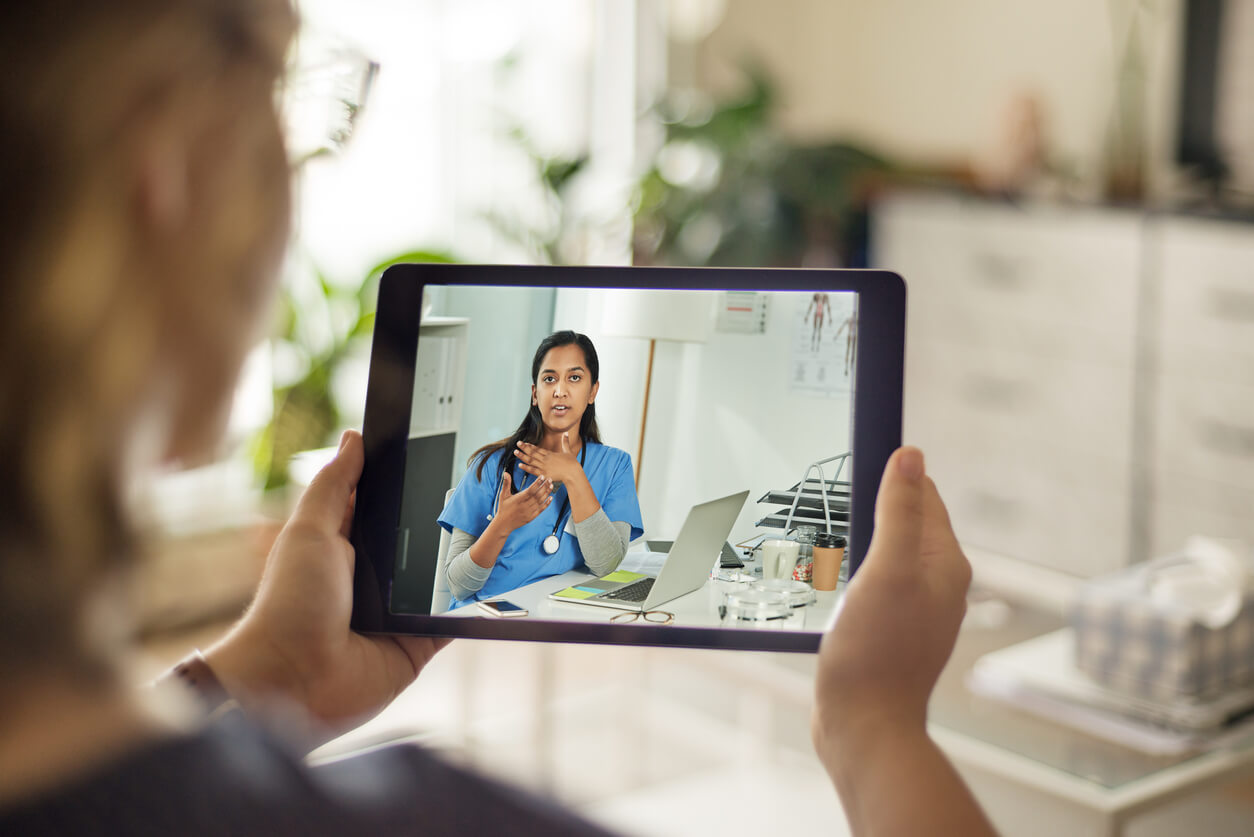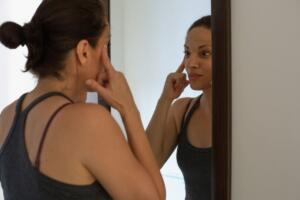“Half of US counties lack a single OB-GYN” says a recent article in the Association of American Medical Colleges, “and some women’s lives are endangered by long treks for much-needed care.”
For women in midlife, ob-gyn care may seem a little less necessary than it did in previous years, but the truth is, during the perimenopause-to-menopause years, a menopause-specialist ob-gyn can be your best ally in helping you understand and manage symptoms. If you can find one….
And unfortunately the problem is going to get worse: the American College of Obstetricians and Gynecologists (ACOG) predicts we’ll be at least 8,000 ob-gyns short by 2020, and as many as 22,000 short by 2050.
While coverage of this issue has mainly centered around the impacts on young, pregnant women, given how few health professionals focus on perimenopause and menopause treatment, women in midlife may find themselves with even fewer options.
Why is the OB-GYN shortage a problem?
While family physicians can and do provide great, quality care, ob-gyns are specialists with training and expertise in those issues that are particularly female. As ob-gyn Dr. Rebecca Dunsmoor-Su said in a podcast with genneve CEO Jill Angelo, “Ob-gyn training is focused specifically on women’s health, and it’s focused on all aspects of women’s health from adolescence through to old age. There is no other specialty where women’s health is the primary focus.”
There may not be a lot of training around obstetric and gynecologic issues for primary care doctors, says Dr. Dunsmoor-Su, and there are times – when choosing birth control, during pregnancy or when experiencing fertility issues, or at menopause, for example – when a woman needs a specialist.
Women in rural areas are particularly at risk of not receiving sufficient care. The nearest ob-gyn may be hours’ drive away – a tough situation for women with no car, little time off work, or a health condition that makes travel difficult or impossible.
Fewer docs of course means a bigger workload for those who are in the field, which may translate to rushed appointments and even less time spent with patients.
What’s causing the shortage?
 There are a lot of reasons why ob-gyns are in increasingly short supply.
There are a lot of reasons why ob-gyns are in increasingly short supply.
One, says Dr. Dunsmoor-Su, is simple economics. Ob-gyns are among the most poorly reimbursed health care professionals, so they tend to concentrate in cities where there are plenty of women needing care.
Additionally, ob-gyns in practice are, on average, 51 years old; docs in this specialty tend to retire earlier, around age 59. And new docs just aren’t filling up the pipeline fast enough.
Ob-gyns also have a higher rate of burnout – small wonder for a profession where 2 out of 3 docs can expect to get sued sometime during their careers, the highest rate among all physician types.
Finally, many new docs entering the ob-gyn field are women themselves, who may choose to take time off or reduce working hours to have and care for families of their own.
What are the impacts on women in menopause?
Specialists are already thin on the ground. The menopause-specialist ob-gyn is already a bit of a unicorn – there just aren’t that many out there. And women in perimenopause and menopause can experience a host of sometimes frightening symptoms (think: heart palpitations, heavy bleeding) that may necessitate at least a conversation.
New docs are choosing specializations within the ob-gyn field, but menopause isn’t a popular choice: most still focus around some aspect of pregnancy or fertility.
There’s an information gap. The menopause transition and the years beyond haven’t had a lot of scientific resources thrown at them. Sadly, for much of its history, Western medicine’s interest in women has largely stopped once the baby is born. There is information out there, but it’s often hard to understand for the layperson, or a not based on hard science.
In the absence of personal care from a specialist, women have few other resources to understand what’s happening in their bodies. Often, women may not even realize what they’re experiencing is perimenopause. More than one woman has landed in the ER with “harmless” hormonal heart palpitations or cold flashes.
Menopause treatment takes time. The dance of hormones in a woman’s body is as individualized as she is; add in diet, exercise, genetics, lifestyle, stress, and and and… There simply is no “one size fits all” cure for even a single symptom, much less the 34 or more that women in menopause may experience.
Consultation, conversation, face-to-face and with a specialist is critical for devising a treatment plan. Women need time to explain, be heard, and understand their options, the benefits and risks, the long-term impacts of her choices now. And time is one thing our declining number of ob-gyns don’t have, particularly as they aren’t reimbursed for talking.
So what do we do to fill the care gap for women in menopause?
If you’re a woman in menopause, even one living in a rural area, all is not lost! Technology is making it much easier for many more women to access quality care.
If you’re looking for a menopause specialist in your area, the North American Menopause Society (NAMS) has an online listing of all its member ob-gyns, including those who’ve achieved the NCMP designation (NAMS Certified Menopause Practitioner). There are menopause specialists out there who aren’t on the list, but it’s a very good place to start.
Perhaps the most promising new way to get quality care is via a telehealth service like ANGELS (the Antenatal and Neonatal Guidelines, Education and Learning System) from the University of Arkansas, or, more specifically for women in midlife, the telehealth offering from online menopause clinic genneve.
Telehealth usually involves a woman talking with a health care practitioner via video chat or text, online. The appointment requires only a decent Internet connection, so women can have their appointments from the comfort of their own home.
Since most of what women in perimenopause and menopause need is consultation, telehealth works well: the entire appointment is focused on the woman and her needs – no interruptions, no paperwork, no waiting.
As Dr. Dunsmoor-Su says, “A lot of what we do is face-to-face counseling. It’s not reliant on an exam; it’s not reliant on prescription. It’s just that women need to talk to somebody who understands what they’re going through and can walk them through the process, give them reassurance where needed, talk to them about what things need to be followed up. A lot of that can be done face-to-face over the computer.”
Read Next:







